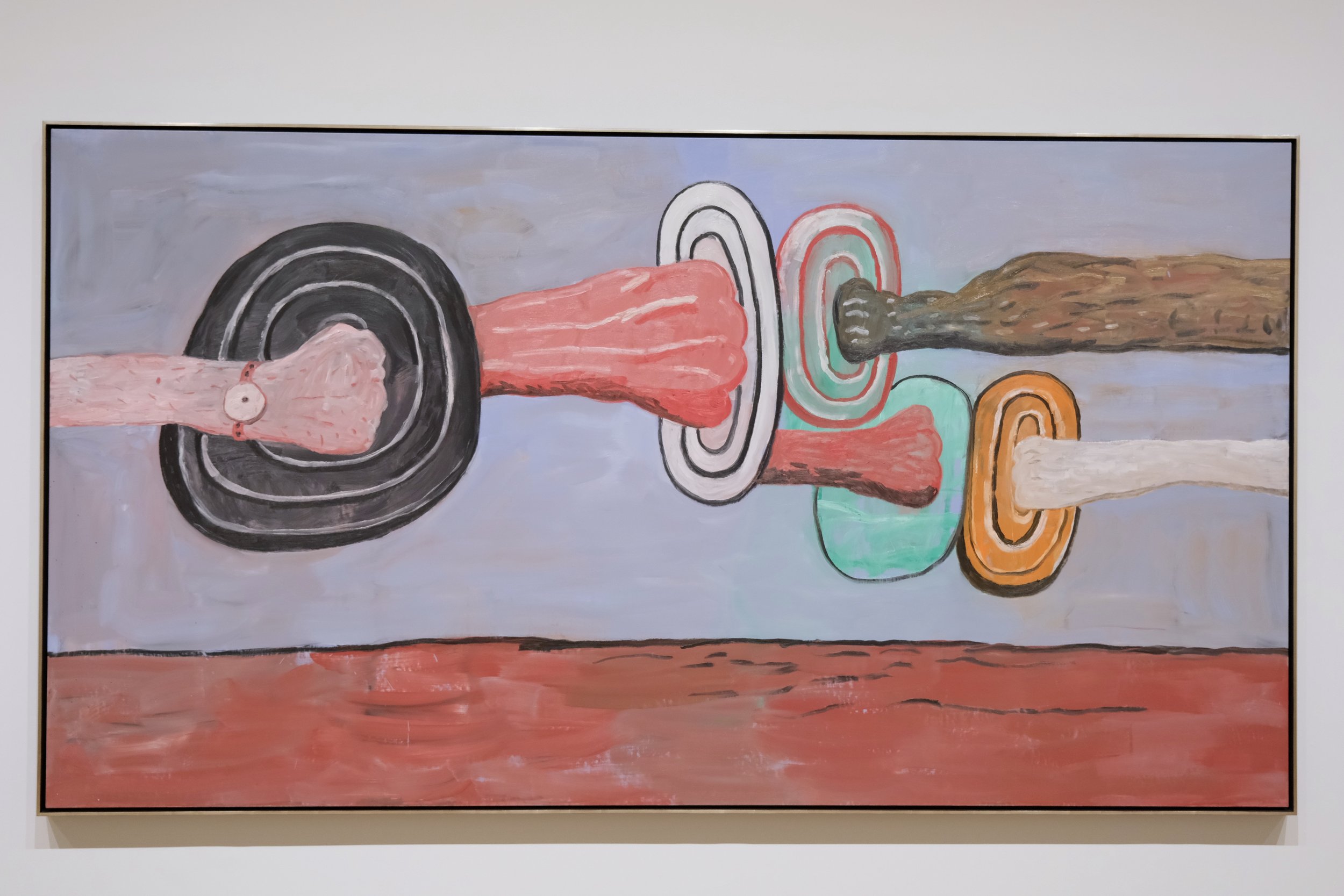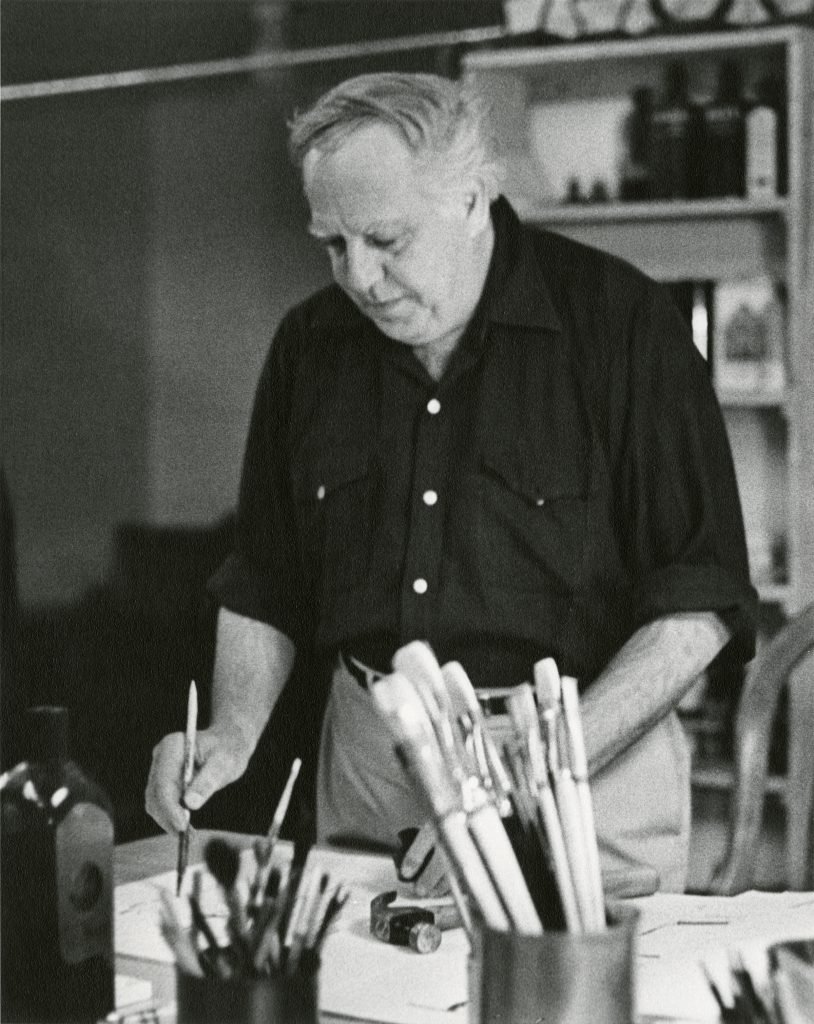The Long-Awaited Exhibition of Philip Guston at the Tate Modern
art, news
Philip Guston, a name that reverberates through the annals of American art history, is a multifaceted figure whose work has left an indelible mark on the world of contemporary visual arts. A seminal artist of the 20th century, Guston's creative odyssey traverses a vast landscape, from the early days of mural painting to a transformative shift from abstract expressionism to the stark and evocative world of figurative art. Philip Guston's art is not merely a visual experience; it is a profound narrative, a reflection of his times, and an exploration of the human condition, inviting us to delve into a world of meaning and artistic evolution that continues to captivate and inspire.

Born in Canada to a Jewish immigrant family, Guston's early experiences laid the foundation for his profound artistic exploration of societal issues, ultimately leading him to become one of the most celebrated abstract painters of the 1950s and 60s. Guston's journey as an artist began in the United States, where he grew up alongside notable contemporaries such as Mark Rothko and his childhood friend, Jackson Pollock. These early years marked the inception of his artistic career, which would see him evolve from a muralist and socially conscious painter to a prominent figure in the abstract expressionist movement.
His genius, his profound commentary on society's pressing issues, and the lasting impact of his visionary contributions to the world of art.
These radical shifts in Guston's work drew both praise and controversy. His departure from abstraction was a courageous and deliberate move to confront the issues of his time head-on. The inclusion of these hooded figures, which can be seen as a reflection of the Ku Klux Klan and the deeply ingrained racism in American society, challenged viewers to engage with the dark underbelly of their own culture.

Philip Guston in his studio
The paintings that emerged from this transformative period established Philip Guston as one of the most influential painters of the late 20th century. His ability to capture the raw emotions of his era through bold and haunting imagery made his work both captivating and provocative. The Tate Modern exhibit is a testament to his restless spirit as an artist, a journey that took him from the abstract to the starkly real, from personal introspection to a profound commentary on the social and political turmoil of his time.
Guston's work continues to resonate and serves as a powerful reminder of the artist's role in challenging and reflecting upon the world's most pressing issues. The Tate Modern exhibit allows visitors to delve into the mind of an artist who never shied away from addressing the complexities of his time, leaving behind a legacy that remains relevant and thought-provoking today.
***
Discover how AI is reshaping the UK art scene, blending technology with creativity to redefine artistic expression.
A visually stunning exploration of ambition and capitalism, The Lehman Trilogy at the Gillian Lynne Theatre is a gripping theatrical experience.
Minsuk Cho’s Archipelagic Void, the 23rd Serpentine Pavilion, reimagines the traditional pavilion design with five timber structures surrounding a central open space.
This year's edition will be showcased in the main exhibition areas and across Venice, encapsulating the essence of modern art.
Explore the vibrant Ndebele-inspired paintings of this esteemed South African artist, bridging cultures and communities while reflecting on identity, migration, and belonging.
An interplay between organic materials and technological influences, from traditional dyeing techniques to digital photography, in this thought-provoking showcase.
As the 1960s unfolded, subjectivism faced challenges from new geometric proposals, notably North-American hard-edge painting.
Public auction sales in the UK declined by 12% to $3.1 billion, but it maintained its position as the third-largest auction market worldwide.
From thought-provoking installations that challenge societal norms to retrospectives honoring iconic figures in contemporary art.
The gallery's skylit ambiance illuminates Steir's masterful exploration of color and form, creating a visually stunning and immersive experience for visitors.
the principle of self-ownership, wherein individuals possess the sovereign authority over their own bodies and life choices.
Travel to 1920s Paris, where André Breton and Paul Éluard led the Surrealist movement, aiming to revolutionize human experience by embracing the unconscious and dreams, rejecting rational perceptions of life.
Sherpa's Californian sojourn in his late twenties became a crucible for experimentation. Collage, sculpture, and installation became his artistic companions as he grappled with displacement, identity, and globalization.
Creative interpretations of three talented artists as they navigate the complex landscape of neuroscience.
Explore the intersection of technology and creativity as Ornagh continues to push artistic boundaries, offering a unique perspective on freedom through her evolving XR artistry.
The Garden of Earthly Delights is not merely a painting; it's an immersive experience, inviting you to uncover the depths of its artistic brilliance through depths of Subconscious.
Brancusi's artistic legacy resonates profoundly, paving the way for the minimalist art movement that unfolded in the 1960s and persisted thereafter.
The project sparks intense debate in the art world, with some praising Molodkin's creativity and political stance, while others criticize it as vandalism and disrespect to art legacies.
Uncover the lasting impact of Cubism on 20th-century art movements. Cubism: A Road of No Return to Abstract Art through Geometry and Planning.





















A stark contrast between the public image of tradition and civic pride, and the reality of a city grappling with profound economic and social inequality.